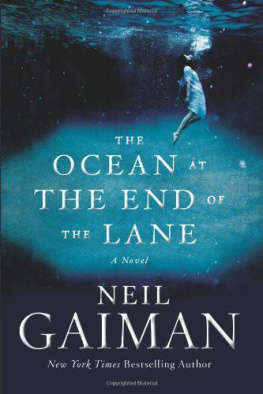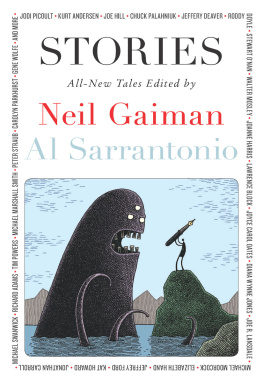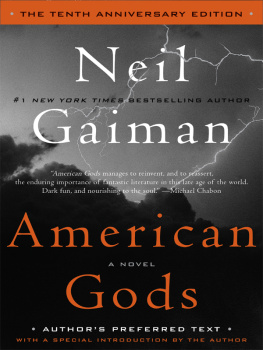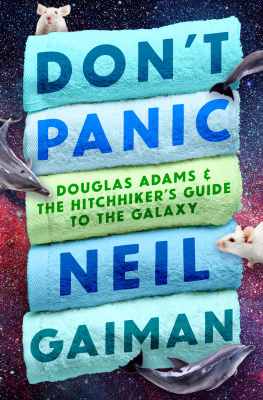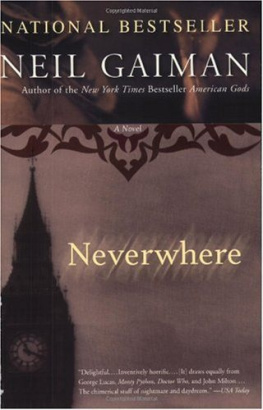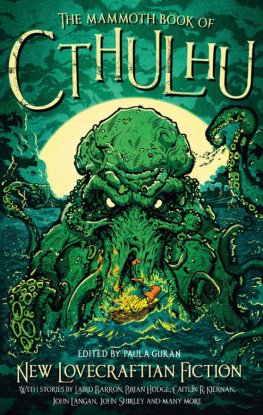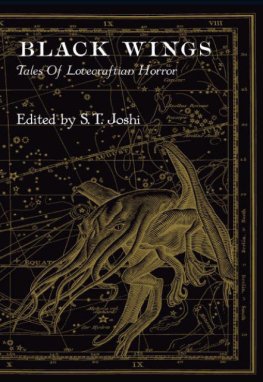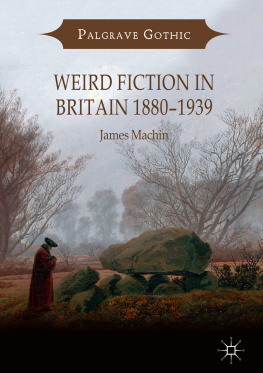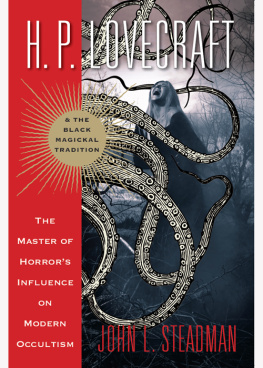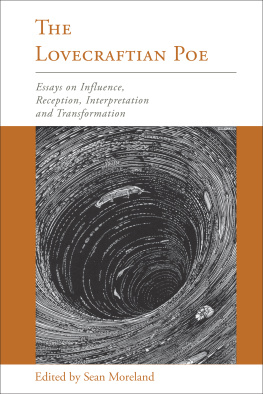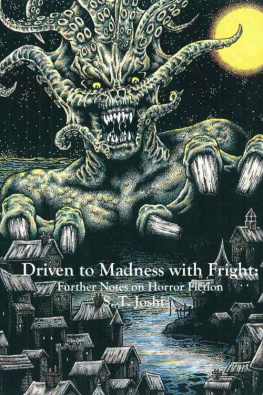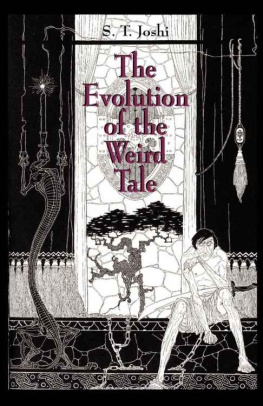NEW CTHULHU:
THE RECENT WEIRD
Edited by Paula Guran

Copyright 2011 by Paula Guran.
Cover art by Rafael Tavares.
Cover design by Telegraphy Harness.
Ebook design by Neil Clarke.
All stories are copyrighted to their respective authors, and used here with their permission. An extension of this copyright page can be found
ISBN: 978-1-60701-328-0 (ebook)
ISBN: 978-1-60701-289-4 (trade paperback)
PRIME BOOKS
www.prime-books.com
No portion of this book may be reproduced by any means, mechanical, electronic, or otherwise, without first obtaining the permission of the copyright holder.
For more information, contact Prime Books.
For Ann Kennedy VanderMeer
Who inspired me to be an editor with Silver Web and kindness.
Who still remains kind and inspiring
and who put the weird back in Weird Tales fiction.
Contents
, Paula Guran
, Caitln R. Kiernan
, Michael Marshall Smith
, John Langan
, Marc Laidlaw
, Dale Bailey & Nathan Ballingrud
, Cherie Priest
, Laird Barron
, Nick Mamatas & Tim Pratt
, Steve Duffy
, W.H. Pugmire
, Neil Gaiman
, John Shirley
, Sarah Monette
, Paul McAuley
, William Browning Spencer
, David Barr Kirtley
, Elizabeth Bear
, Holly Phillips
, Don Webb
, Norman Partridge
, Cody Goodfellow
, China Miville
, Kim Newman
, Lon Prater
, Michael Shea
, Elizabeth Bear & Sarah Monette
, Charles Stross
INTRODUCTION
I first encountered the works of H.P. Lovecraft around 1974 on a mantel in Oklahoma City. A friend had the six Ballantine paperbacksthe black ones with John Holmess face coversof three Lovecraft collections, the two Tales of the Cthulhu Mythos anthologies (with stories mostly by other writers), and The Shuttered Room and Other Tales of Horror (supposedly posthumous collaborations between Lovecraft and August Derleth, but actually authored solely by Derlethnot that I had any knowledge of such perfidy at the time). I dont recall any other books on that manteljust those: centered and practically enshrined in a place of honor.
Those books were really weird books, man...
By the mid-1970s, Howard Phillips Lovecrafts small, dedicated band of loyal readers was beginning to grow much larger, but his influence on horror (and, to an extent, fantasy and science fiction) was already profound. As Peter Straub has noted: His influence on other writers, which was immediate, has proved to be unending and fruitful. In Danse Macabre , Stephen King wrote that Lovecraft... opened the way for me, as he had done for others before me... [T]he reader would do well to remember that it is his shadow... which underlies almost all of the important horror fiction that has come since.
Lovecrafts legacy also includes the essay Supernatural Horror in Literature, which, in the opinion of many, still stands as one of the finest examinations of its subject. His thousands of letters (S.T. Joshi estimates HPL penned around 100,000) conveyed and further disseminated his ideas to myriad correspondents.
During his life, Lovecraft saw himself as a nonentity who did not expect to become a serious competitor of my favorite weird authors. After his death he was, outside genre (and often within it), dismissed as nothing more than a pulp fictionist who wrote outdated florid prose. Now, after decades of scholarly devotion to gaining recognition for him as (to quote Joshi) an unassailable literary figure, H.P. Lovecraft has not only gained respectability but entered the literary canon.
In 1997, Tales of H.P. Lovecraft (Ecco) offered a selection of Lovecrafts stories chosen and introduced by the impeccably literate Joyce Carol Oates. In 2005, McSweeneys published a translation of the indecipherably literate French cultural critic Michel Houellebecqs 1991 H.P. Lovecraft: Against the World , Against Life. More importantly, 2005 saw the venerable Library of America indicate HPLs significance as an American author by publishing H.P. Lovecraft: Tales , a collection compiled by Peter Straub. A single volume of all of Lovecrafts fiction, H.P. Lovecraft: The Fiction became part of the Barnes & Noble Library of Essential Writers series in 2008.
Beyond literature, Lovecraft has been mainstreamed through film, television, music, graphic arts, comics, manga, gaming, manga, and theatre for years. Even if youve never read a word of H.P. Lovecrafts fiction, you have been introduced to his imagination without realizing its origin.
Who Was Howard Phillips Lovecraft?
Lovecraft was little known to the general public while alive and never saw a book of his work professionally published. Brilliant and eccentric, he was also decidedly odd.
Howard Phillips Lovecraft was born on August 20, 1890, the son of Windfield Scott Lovecraft and Sarah Susan Phillips Lovecraft in Providence, RI. Lovecrafts father, a victim of untreated syphilis, went mad before his son reached age three. The elder Lovecraft died in an insane asylum in 1898. It is doubtful Howard ever knew the true cause of his fathers demise.
After his fathers death, young Howard was raised by his mother; two of her sisters; and his maternal grandfather, Whipple Van Buren Phillips, a successful businessman. His mother was an over-protective and domineering parent. She spoiled and coddled her son, but was also highly critical of him. She told the quite normal-looking boy, for example, that he was so hideous he should not leave the house as he might scare the neighbors.
Sickly (probably due more to psychological factors more than physical ailments) and precocious, Lovecraft later claimed that, as a child, he was very peculiar and sensitive, always preferring the society of grown persons to that of other children. I could not keep away from printed matter. I had learned the alphabet at two, and at four could read with ease... He discovered The Arabian Nights and Grimms Fairy Tales . A year or so later, HPL developed an intense interest in ancient Greece and Rome. He also discovered weird fiction at an early age as his grandfather often told tales in the gothic mode. Lovecraft began writing at age six or seven.
Lovecraft started school in 1889, but attended erratically due to ill health. After his grandfathers death in 1904, the family was financially challenged. Lovecraft and his mother moved to a far less comfortable domicile and the adolescent Howard no longer had access to his grandfathers extensive library. With private instruction an impossibility, HPL began attending a public high school where he became interested in Latin and continued writing. A physical and mental breakdown kept him from graduating (and, consequently, college). He became reclusive, rarely venturing out during the day. At night, he walked the streets of Providence, drinking in its atmosphere. He read, studied astronomy, and, in his early twenties, began writing poetry, essays, short stories, and eventually longer works. He also began reading Jules Verne, H.G. Wells and pulp magazines like The Argosy , The Cavalier, and All-Story Magazine .
Lovecraft was saved from his life of solitude when he became involved in amateur writing and publishing. As HPL himself wrote: In 1914, when the kindly hand of amateurdom was first extended to me, I was as close to the state of vegetation as any animal well can be...
His story, The Alchemist (written in 1908 when he was 18), was published in United Amateur in 1916. Stories appeared in other amateur publications like Vagrant and Home Brew .
Lovecrafts mother suffered a nervous breakdown in 1919 and was admitted to the same hospital in which her husband had died. Her death, in 1921, was the result of a bungled gall bladder operation.
Next page

